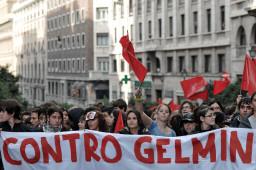A government decree designed to overhaul the employment of university staff and promote meritocracy in Italy's higher education system came into effect on Tuesday.
The decree relaxes a restriction placed on the recruitment of researchers in the government's budget blueprint passed this summer, permitting universities to take on one new researcher for every two researchers whose contracts expire, instead of one for every five, between 2009 and 2011.
In a bid to help out young researchers at the start of their careers, the decree also rules that universities must spend at least 60% of their funds on the employment of researchers and 10% on more senior lecturers.
However, universities who are already spending more than 90% of their funds on salaries are barred from taking on any further staff.
The perception of widespread corruption in the university recruitment process will meanwhile be addressed by new rules on interviewing panels, which must include one professor from the university department taking on new staff and up to four professors from other universities.
The decree also increases funding for research studentships by 135 million euros from next year.
In addition, 7% of government funds allocated to universities (eventually rising to 30%) will be shared out on a performance basis from 2009, rewarding universities which demonstrate excellence in teaching and research.
The decree was greenlighted by the cabinet last week, when Education Minister Mariastella Gelmini also presented guidelines for a wider reform of the university sector.
The decree was welcomed by some university bodies including the Conference of Italian University Chancellors and heads of research institutes.
But critics have downplayed the usefulness of the decree in the light of government spending cuts of 1.5 billion euros planned for 2010.
The National Association of University Teachers called it ''unacceptable'' because it still contained restrictions on recruitment.
Students and professors meanwhile continued strikes, marches and sit-ins over Gelmini's wider programme of cost-cutting reforms, which has yet to be finalised but is tipped to include a reduction in the number of courses offered and the closure of some outlying university branches with low student attendance.
''You can't stop a protest that is growing in the conscience of the country with this plate of lentils,'' Flc-Cgil union chief Mimmo Pantaleo said of the decree.
Unions have called a national strike for the university sector to take place in Rome on Friday.










